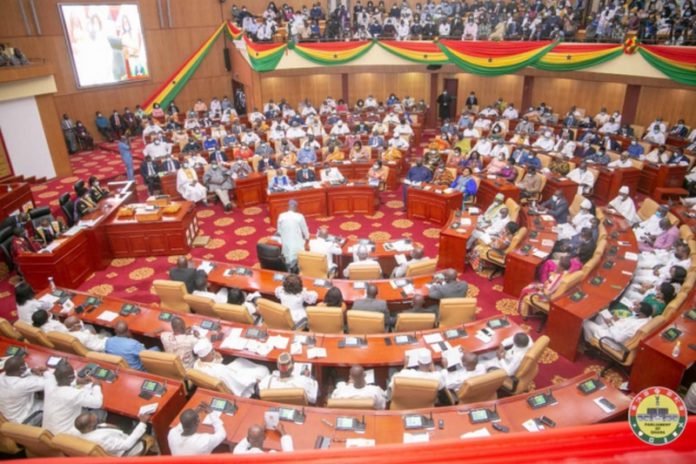Member of Parliament for Ningo-Prampram, Samuel Nartey George, has debunked assertions that the motion tabled by Deputy Majority Leader, Alexander Afenyo-Markin, led to the House not taking the third reading on the Anti-LGBTQI+ Bill.
In his submission on JoyNews’ Newsfile, Sam George, one of the sponsors of the bill explained some anomalies were detected.
“It was not the motion put forward by my learned senior and friend, Afenyo-Markin, that prevented the third reading of the bill. We ourselves had detected some anomalies and errors in the draft document and had asked same to be worked on which, at the time Afenyo-Markin was making his submission, they had not been rectified” Sam George stated.
“That explains why my colleague, the co-sponsor, stood up to support Afenyo-Markin. Putting it on hold at the time was the best means to get the bill cleaned before it is passed into law” he indicated.
Though he affirmed that he does not agree with the position of Mr Afenyo-Markin in its entirety, there are aspects of his submissions which are in tandem with the principles underpinning the bill as contained in the draft document.
Afenyo-Markin, in his submission on the floor of Parliament, averred that, though he is in full support of the anti-LGBT Bill, he begs to differ on the custodial sentence portion of the bill.
He advocated the need to change that part to community service. In his view, imprisonment would not lead to those inmates being reformed or corrected to be able to reintegrate into the larger society after being cured.
Meanwhile, Chairman of Parliament’s Constitutional and Legal Committee, Kwame Anyimadu-Antwi, in a separate interview with Asaase Radio, shared the sentiments expressed by Afenyo-Markin.
“So Afenyo’s argument which to me is very sound, that this issue we have made it an offence, punish them but you can give them a community service, which we are yet to develop, to me is the best” he posited.
Parliament is yet to fine-tune the Anti-LGBT Bill draft before it is passed into law. It is believed that, sooner than later, the bill will become law.
ALSO READ:

